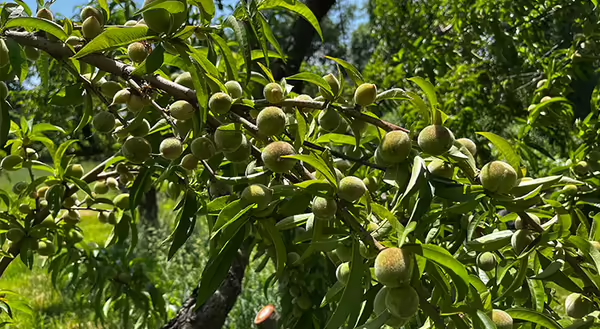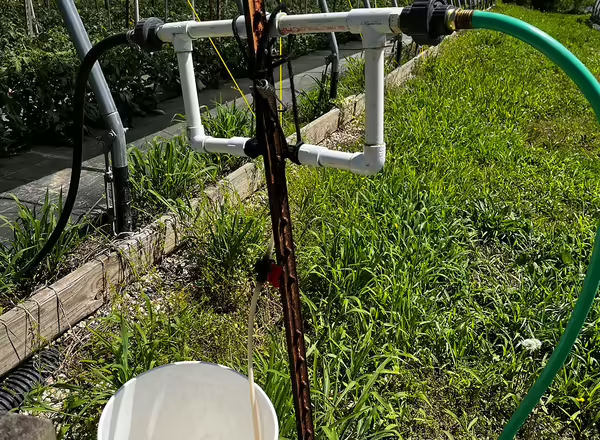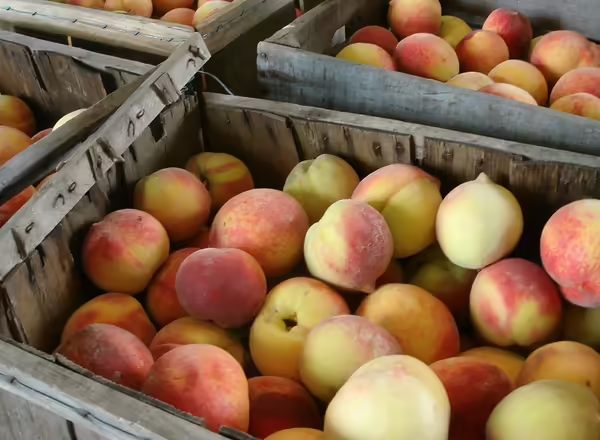
Peaches hanging in there - On Friday, May 16, tornadoes impacted several locations across Missouri, Illinois, and Kentucky. Many in surrounding areas not directly affected by the tornadoes still experienced high winds and rain…and others got sizeable hail too. Peaches in the Hardin area were loose enough for some to be dislodged by wind and/or hail, but hopefully final hand thinning will cull out any remaining damaged fruit. The upshot is we still have a good crop. Apples in the St Louis Metro-east region are at the 28+mm size. Pollination conditions for apples were not the most conducive, so the bloom did not result as big a bumper crop as anticipated, but there appears to be plenty of apples regardless. Grapes are at petal-fall/post bloom. Temperatures have stayed relatively mild and would have been great for extending the strawberry season, if Neopestalotiopsis had not reared its ugly head in early May and ended the season already for most plasticulture growers. Asparagus is roughly in the fifth week of harvest.

Simple solutions
Sometimes “simple” gets the job done - During a recent consultation concerning elevated soil pH in high tunnels, it came to light one of the contributing factors was the water source for irrigation was above pH 8.0 and needed to be adjusted down with an acidifier to aid in high tunnel tomato mineral uptake. The solution needed to be budget conscious, work with the system in place, and be quick to install with the planting season looming. With my suggestion of a citric acid solution siphoned from a 5-gallon bucket, the grower took it from there. The grower built a venturi-style fertilizer injector assembly for each house for right around $70 each, and using a portable pH meter adjusted the citric acid solution until the outgoing water to the irrigation system was in the range of pH 5.8-6.5.

Peach Field Day
Peach field day announced for August 20 - Eckert’s, at their Belleville Farm, will be hosting a field day Wednesday, August 20 from 10am to 12pm, focused on advances in peach production. Tour stops will include a SARE supported project evaluating peaches grown on various rootstocks and trained to a planar/two-dimensional system for usefulness in commercial production; a small peach rootstocks block including MP-29, Controller 6, and Krymsk 86; and a look at the California style leader system. Planning has just started, so save the date and look for additional details in future newsletters as the event nears.